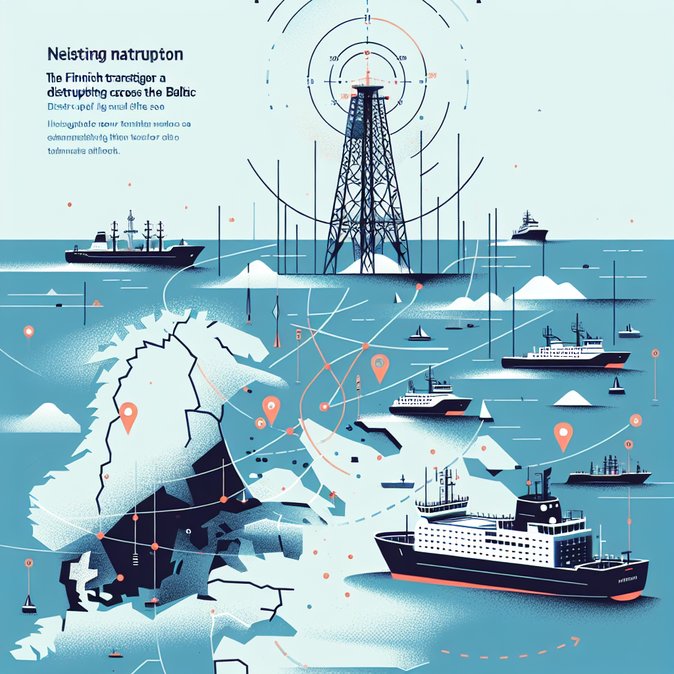
Shipping lines and coastal authorities spent much of 11 November 2025 scrambling to understand why hundreds of vessels suddenly appeared to be drifting aimlessly across the Baltic Sea. The anomaly—first noticed on Swedish maritime-traffic screens—was traced within hours to a malfunctioning Automatic Identification System (AIS) relay operated by a hobbyist in Finland.
According to Lloyd’s List, the rogue signal flooded public AIS feeds with spoofed position data, creating ‘ghost ships’ from Kaliningrad to the Gulf of Bothnia. No collisions occurred, but several freighters temporarily reduced speed or altered course until the readings were verified. The Finnish Transport and Communications Agency (Traficom) worked with the Border Guard to shut down the transmitter and has opened an investigation that could lead to criminal-negligence charges under Finland’s updated Maritime Safety Act.
![Finnish Amateur Radio Station Blamed for Baltic AIS Chaos, Prompting Calls for Stricter Maritime-Tech Oversight]()
The incident has broader mobility implications. AIS is not only vital for commercial shipping but also underpins ferry schedules, pilot-age services and the digital border-surveillance networks that track irregular migration by sea. A single rogue station was able to compromise situational awareness across eight coastal states, highlighting the fragility of tech layers that support cross-border mobility and supply chains.
Finnish authorities are now considering mandatory licensing for high-power AIS repeaters and tighter coordination with telecom operators. Neighbouring Estonia and Sweden have already signalled support for a regional ‘whitelist’ of approved transponders—an idea freight forwarders say would reduce outage risks ahead of the busy winter-season timber exports.
For logistics and mobility managers, the key takeaway is resilience planning. Organisations moving staff or goods through Finnish ports should review contingency routes and ensure voyage-data recorders can cross-check multiple sources, including satellite AIS. The episode also serves as a reminder that cyber-physical threats are increasingly part of border-security conversations in the Nordic region.
According to Lloyd’s List, the rogue signal flooded public AIS feeds with spoofed position data, creating ‘ghost ships’ from Kaliningrad to the Gulf of Bothnia. No collisions occurred, but several freighters temporarily reduced speed or altered course until the readings were verified. The Finnish Transport and Communications Agency (Traficom) worked with the Border Guard to shut down the transmitter and has opened an investigation that could lead to criminal-negligence charges under Finland’s updated Maritime Safety Act.

The incident has broader mobility implications. AIS is not only vital for commercial shipping but also underpins ferry schedules, pilot-age services and the digital border-surveillance networks that track irregular migration by sea. A single rogue station was able to compromise situational awareness across eight coastal states, highlighting the fragility of tech layers that support cross-border mobility and supply chains.
Finnish authorities are now considering mandatory licensing for high-power AIS repeaters and tighter coordination with telecom operators. Neighbouring Estonia and Sweden have already signalled support for a regional ‘whitelist’ of approved transponders—an idea freight forwarders say would reduce outage risks ahead of the busy winter-season timber exports.
For logistics and mobility managers, the key takeaway is resilience planning. Organisations moving staff or goods through Finnish ports should review contingency routes and ensure voyage-data recorders can cross-check multiple sources, including satellite AIS. The episode also serves as a reminder that cyber-physical threats are increasingly part of border-security conversations in the Nordic region.


